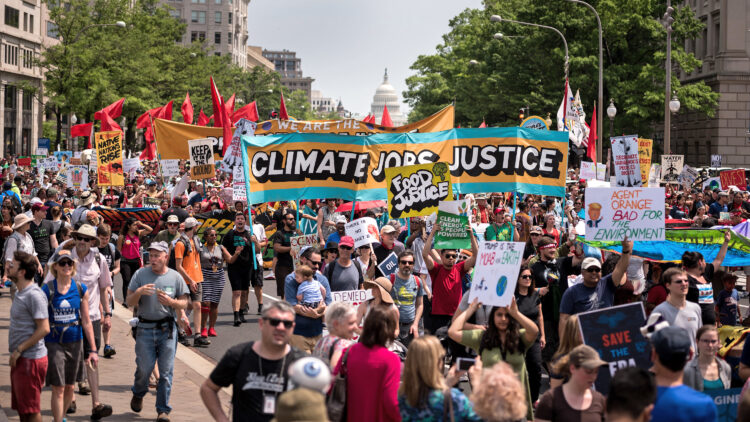You can only advocate for the environment if you know many environmental issues. You don’t want people to question your knowledge because you can’t respond. If you want to promote ways to protect the environment, you must boost your knowledge first. Here’s how.
Page Contents
Join nonprofit organizations
Being a part of these organizations allows you to deepen your knowledge about the environment. The best part is you can also volunteer your time and help further the cause. While working with other advocates, you will know more about what they do. If you want to entice others to help out, you can explain your firsthand experience as a volunteer.
Read information from reliable sources
You can find news about the environment online. You can also follow social media pages. The key is to select reliable sources. You should also triangulate information if you’re unsure. You might be too passionate about saving the environment to fall into a trap. You cannot only read the news that agrees with your pre-conceived knowledge. You should accept information as long as it’s from a credible source.
Talk to experts
It doesn’t hurt to talk to experts. They will share information about the environment based on their research. They also worked in specific fields before, and they can tell you what they did to do their share in saving the environment. If you decide to talk to them, you will learn from their studies and experience. You can even ask questions to deepen your knowledge.
Attend a rally or a march

Source: nytimes.com
You will learn from other passionate advocates on the street. You might only see them raising signs, but you can also interact with them. These people wouldn’t go out of their way to raise environmental awareness if they didn’t know much. It might be uncomfortable to join these rallies, but it’s worth doing. You won’t always feel successful, but knowing that you did your share will be good.
Study online
You can always go online if you’re too busy with work to attend a local college. You will find free crash courses about the environment. You can also interact with university professors while studying. You can maximize these online courses since your goal is to know more. You will also be with people passionate about the environment who decided to study online.
Practice at home
You will find several tips for saving the environment that you can practice at home. However, you won’t know if they work unless you try. Therefore, it helps if you get information online and try doing them at home. For instance, you can work with a reputable recycling facility like langleyrecyclingkc.com for metal recycling. You can also tell others how the process works based on your experience. As always, experience is the best teacher, and that’s how you know more about the environment.
Talk to local officials
We need the best leaders to protect the environment. You should find people who see climate change as a problem and will do whatever it takes to get the job done. The good thing about having the right leaders is they can change policies. They’re at the center of policymaking, and they can impact the locality in many ways. Therefore, having a conversation with your local officials will make you more knowledgeable. You can attend town halls or campaign rallies. You can even call them and ask for a meeting.

Source: medium.com
You will find several environmentalists on social media. They share their experience and expertise. The good thing about social media is you can constantly interact with people. You can even ask questions, share your thoughts, and learn. The only caveat is you might get the wrong information. Therefore, you should be cautious with what you read. Take everything with a grain of salt. You should also triangulate the data.
Read books
Some environmentalists publish their journey in environmental conservation. Whether through fiction or nonfiction books, there’s always something to learn. Therefore, it pays to read books and allow yourself to journey with these people. You weren’t there when they experienced what they wrote, but it will feel like it.
Conduct research
You can also research if you want to test your hypothesis. As long as you use the scientific process, your research will end well. Besides, your publication will undergo peer evaluation to determine if you did the proper steps. You can learn from what others did, but you will know more from your experience. If your hypothesis was incorrect, it’s still helpful information to share in the scientific community.
Visit art galleries
Artists also express their perspectives on environmental protection through their work. They might use their creative thinking skills, but they also use their experience to express themselves. Therefore, visiting these art galleries will expand your knowledge about environmental issues. You can even ask these artists why they arrived at a specific work of art and the process they went through.
You’re doing the right thing by expanding your knowledge. You also want to enrich yourself since you wish to advocate for the environment. It’s a responsible action if you’re going to preach the word. You will also be more confident in responding to questions since you did your part. Some people have difficulty advocating for the environment due to their limited knowledge.

Source: jameshempel.com
Hopefully, you don’t give up finding ways to save the environment. It can be exhausting, but it’s for the next generation. Unfortunately, the children are incapable of doing something right now, so it falls upon us responsible adults to do the right thing.
We also live in the age of disinformation. It’s easy to spread false ideas online that will discourage people from protecting the environment. Climate change deniers are stepping up their game to sow seeds of doubt. But, of course, they have to protect the interest of big corporations as they’re against climate change policies. You can do your share by spreading the right ideas.





